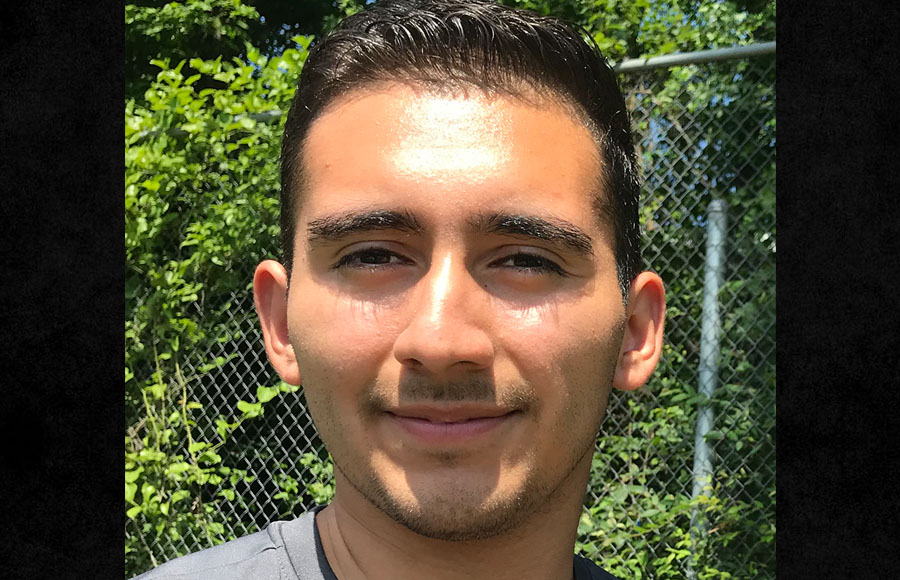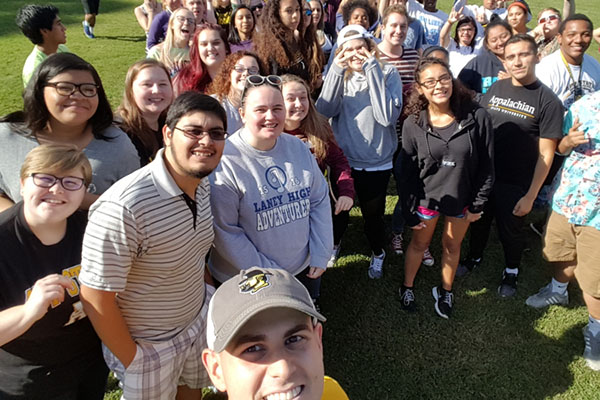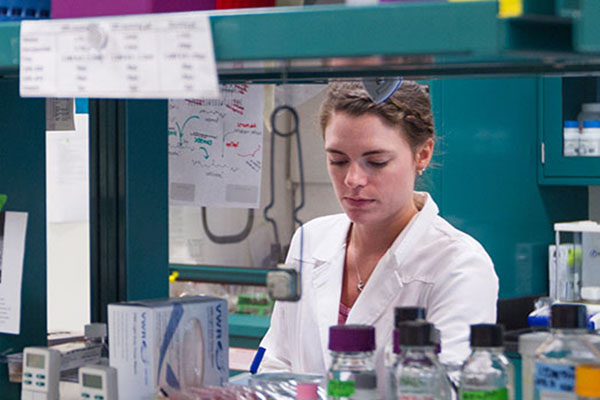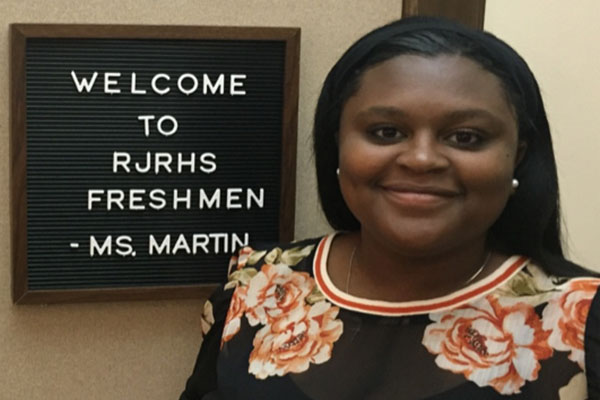BOONE, N.C. — Appalachian State University cellular/molecular biology major Andy Mendoza, of Durham, attests to the good that comes when students are engaged in research during their undergraduate studies.
“(Professors at Appalachian) are conducting research here on campus and are more than happy to take in new undergraduate students who are passionate about science,” Mendoza said. “At a lot of other universities, research labs consist primarily of graduate students with little to no room for undergraduates to participate.”
During his sophomore year at Appalachian, Mendoza joined Dr. Kevin Zwetsloot, associate professor in Appalachian’s Department of Health and Exercise Science, and other undergraduate researchers for a research study.
The group examined inflammation and the related mechanisms that contribute to sarcopenia (the degenerative loss of skeletal muscle mass, quality and strength) and the regulation of skeletal muscle repair. This informative experience catalyzed Mendoza’s interest in research and led to a meaningful internship.
This summer, Mendoza, now a junior at Appalachian, is a biostatistics and computational biology intern at the National Institute of Environmental Sciences (NIEHS) in Research Triangle Park, conducting research to identify false positive signals from a chemical toxicity library. This internship includes individual training, participation in workshops and lectures, and access to renowned scientists.
Mendoza hopes to use this internship and his studies at Appalachian to pursue his dream career of becoming a physician.
“After I graduate, I plan on attending a post-baccalaureate program at the National Institutes of Health to gain further experience in research,” Mendoza said. “Then (I want to) apply to medical school.”
Mendoza is a recipient of the university’s ACCESS Scholarship, which has allowed him the time and financial security to pursue his passions and become an engaged member of the Appalachian Community.
In addition to participating in research, Mendoza serves as the external vice president of Appalachian’s Phi Chi Pre-Medical and Pre-Dental Society. He was named to the Chancellor’s List in spring 2019 and, this fall, he will be a resident assistant and a student ambassador for the College of Arts and Sciences (CAS) as a CAS Corps member.
Mendoza said he finds value in creating relationships with the professors in his department. “My most beneficial experience overall has been visiting my professors during office hours and getting to interact with the course material outside of lecture,” he said. “It is a great way of clearing up any questions or just delving further into the course material.
“The faculty at Appalachian are not only extremely passionate about their respective fields but also about the well-being of their students,” he continued. “Appalachian is a place like no other.”
What do you think?
Share your feedback on this story.
About the Department of Biology
The Department of Biology is a community of teacher-scholars, with faculty representing the full breadth of biological specializations — from molecular genetics to landscape/ecosystem ecology. The department seeks to produce graduates with sound scientific knowledge, the skills to create new knowledge, and the excitement and appreciation of scientific discovery. Learn more at https://biology.appstate.edu.
About the College of Arts and Sciences
The College of Arts and Sciences (CAS) at Appalachian State University is home to 17 academic departments, two centers and one residential college. These units span the humanities and the social, mathematical and natural sciences. CAS aims to develop a distinctive identity built upon our university's strengths, traditions and locations. The college’s values lie not only in service to the university and local community, but through inspiring, training, educating and sustaining the development of its students as global citizens. More than 6,800 student majors are enrolled in the college. As the college is also largely responsible for implementing App State’s general education curriculum, it is heavily involved in the education of all students at the university, including those pursuing majors in other colleges. Learn more at https://cas.appstate.edu.
About student research at Appalachian
Appalachian State University encourages faculty-mentored student research, which provides students with the opportunity to work side by side with faculty on meaningful research or creative endeavors. These projects often result in presentations, performances or exhibitions at regional, national and international conferences and events. Students who engage in research are able to apply knowledge from the classroom into real-world experiences and learn how to problem-solve, effectively communicate and analyze complex issues. Appalachian’s Office of Student Research (OSR) was established in 2005 to expand the opportunities necessary for undergraduate and graduate students to engage in research and creative activities at Appalachian. Learn more at https://osr.appstate.edu.
About Appalachian State University
As a premier public institution, Appalachian State University prepares students to lead purposeful lives. App State is one of 17 campuses in the University of North Carolina System, with a national reputation for innovative teaching and opening access to a high-quality, cost-effective education. The university enrolls more than 21,000 students, has a low student-to-faculty ratio and offers more than 150 undergraduate and 80 graduate majors at its Boone and Hickory campuses and through App State Online. Learn more at https://www.appstate.edu.















